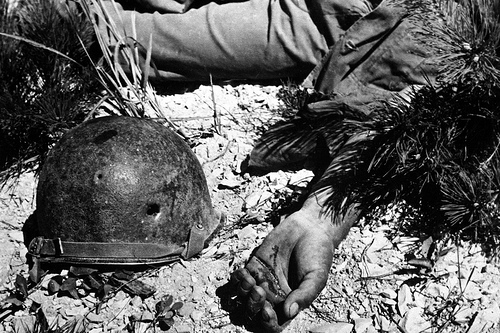All Quiet on the Western Front (1930)Considered to be the best anti-war film of all time, we start with this black-and-white masterpiece. Telling the story of a young German man caught up in the madness that led to the trenches of WWI, this film is explores the questions of good and bad, who is really the enemy, and the disillusionment caused by fighting.
Cabaret (1972) With Bob Fosse's classic exploration of the rise of Naziism in 1930's Berlin, we leave the battlefield to consider how a country, recently recovering from the bloodbath of WWI, lets itself be seduced into the even greater destruction of WWII. Was decadence and insensitivity to the sufferings of others the fuse that lit the dynamite that was Hitler's Germany?
The Bridge on the River Kwai (1957) Thousands of Dutch, English, and Australian soldiers died building the Burma Railway under the maniacal supervision of the Japanese Empire. Here, the building of a bridge becomes a metaphor for the madness and folly of war. Can the blind following of one's duty justify anything and everything?
Tentative Schedule:
8u30 mass (optional)
9u30 Welcome with broodjes
10u00 Brief introduction to the films and subject matter
10u30 All Quiet on the Western Front
13u00 Lunch Break
13u30 Cabaret
15u00 Pause
15u30 The Bridge on the River Kwai
18u00 Discussion
19u00 End
 War films have long been one of the most popular movie genres. From the dawn of silent films to "Inglourious Basterds", stories of war and its ravages have been entertaining audiences and making us think. For our third film marathon, we will move from the Regency England romance of Jane Austen to the battlefields of Europe and Asia during the first half of the 20th century.
War films have long been one of the most popular movie genres. From the dawn of silent films to "Inglourious Basterds", stories of war and its ravages have been entertaining audiences and making us think. For our third film marathon, we will move from the Regency England romance of Jane Austen to the battlefields of Europe and Asia during the first half of the 20th century.